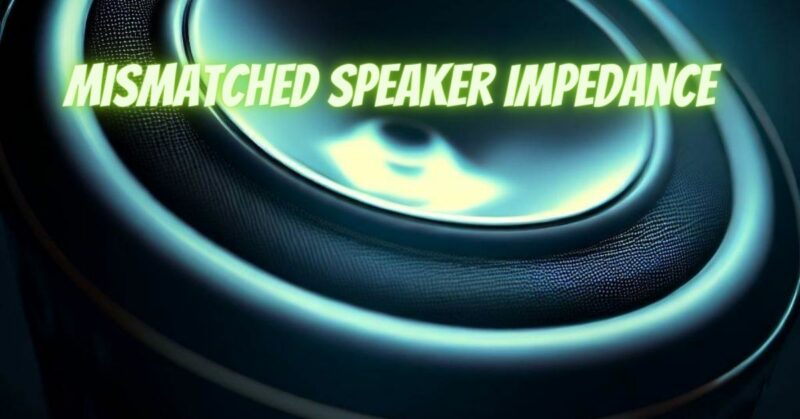Speaker impedance is the electrical resistance of a speaker, measured in ohms. The lower the impedance, the more current the speaker will draw from the amplifier.
When speakers with different impedances are connected to an amplifier, it can cause problems. If the speaker impedance is lower than the amplifier is designed to drive, the amplifier may overheat and damage the speakers. If the speaker impedance is higher than the amplifier is designed to drive, the speakers may not get enough power and will not sound as loud.
In general, it is best to match the speaker impedance to the amplifier. However, there are some cases where it is possible to mismatch the impedance without causing problems.
For example, it is generally safe to connect a 4 ohm speaker to an amplifier that is rated for 8 ohms. In this case, the amplifier will simply deliver less power to the speaker, which may result in a lower volume level.
However, it is not advisable to connect an 8 ohm speaker to an amplifier that is rated for 4 ohms. In this case, the amplifier will deliver more power to the speaker than it is designed to handle, which can damage the speakers.
If you are unsure about whether or not you can mismatch the speaker impedance, it is always best to consult with a qualified audio professional.
Here are some additional tips for avoiding mismatched speaker impedance:
- Always check the impedance of the speakers and the amplifier before connecting them.
- Make sure that the amplifier is capable of driving the speakers at their rated impedance.
- Avoid playing the speakers at high volumes.
- If you are unsure about how to connect the speakers, consult with a qualified audio professional.
Troubleshooting mismatched speaker impedance
If you think that you may have mismatched speaker impedance, there are a few things you can do to troubleshoot the problem:
- Check the impedance of the speakers and the amplifier. Make sure that they are compatible.
- Try connecting the speakers in different ways. For example, if you have connected the speakers in parallel, try connecting them in series.
- Reduce the volume of the amplifier. This will reduce the amount of power that is delivered to the speakers.
- If you are still having problems, consult with a qualified audio professional.
Mismatched speaker impedance can cause problems, but it is usually avoidable. By following the tips above, you can help to ensure that your speakers are not damaged by mismatched impedance.


